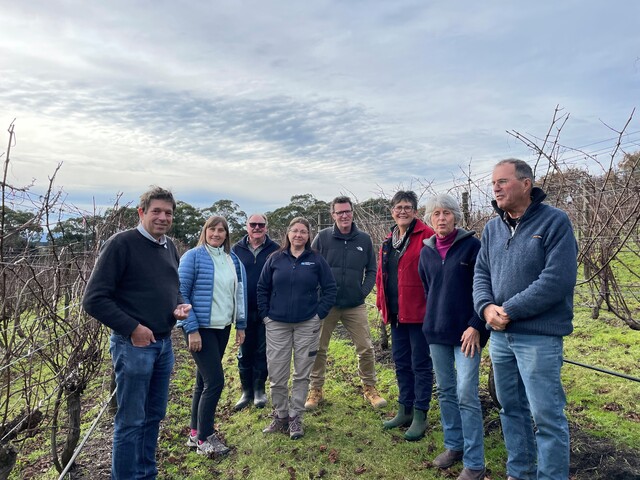Two Macedon Ranges vineyards were involved in a Melbourne Water study on the benefits of using urban recycled green waste, finding its use provides benefits throughout spring and summer.
The three-year project aimed to investigate benefits of recycled urban green waste mulch and compost to these high-altitude vineyards, with results showing benefits to vine health and grape yield while suppressing weeds.
The project also aimed to find solutions for reducing the labour-intensive work involved in maintaining optimal temperatures for vine roots and grapes at these sites.
The study found recycled urban green waste mulch led to the vine roots and bunch zones being warmer in spring and cooler in summer, providing benefits to the vine health and grape production.
In regards to the green waste compost, the study found that the material varied depending on the batch and its nutrients, but found it could be used to save fertiliser with a consistently high-nutrient and regulated product.
While the compost did not suppress weeds in the trial, the mulch did.
Melbourne Water sustainable agriculture facilitator Karen Thomas said the results of the trial show that these options could be considered in place of conventional methods.
“The use of recycled green waste as mulch under vines resulted in higher yields, and reduced need for chemicals compared to conventional practices such as brush cutting, herbicides, or application of other mulch types such as straw,” Ms Thomas said.
“This is great news for the wine industry, as well as the environment, and we hope will encourage other vineyards to look at using high quality recycled green waste.”
The project was delivered by Melbourne Water in partnership with Macedon Ranges Vignerons Association, Bio Gro and GrapeLinks, and is funded through the Sustainability Victoria Circular Economy Markets Fund – Organics on behalf of the state government.
Oscar Parry








